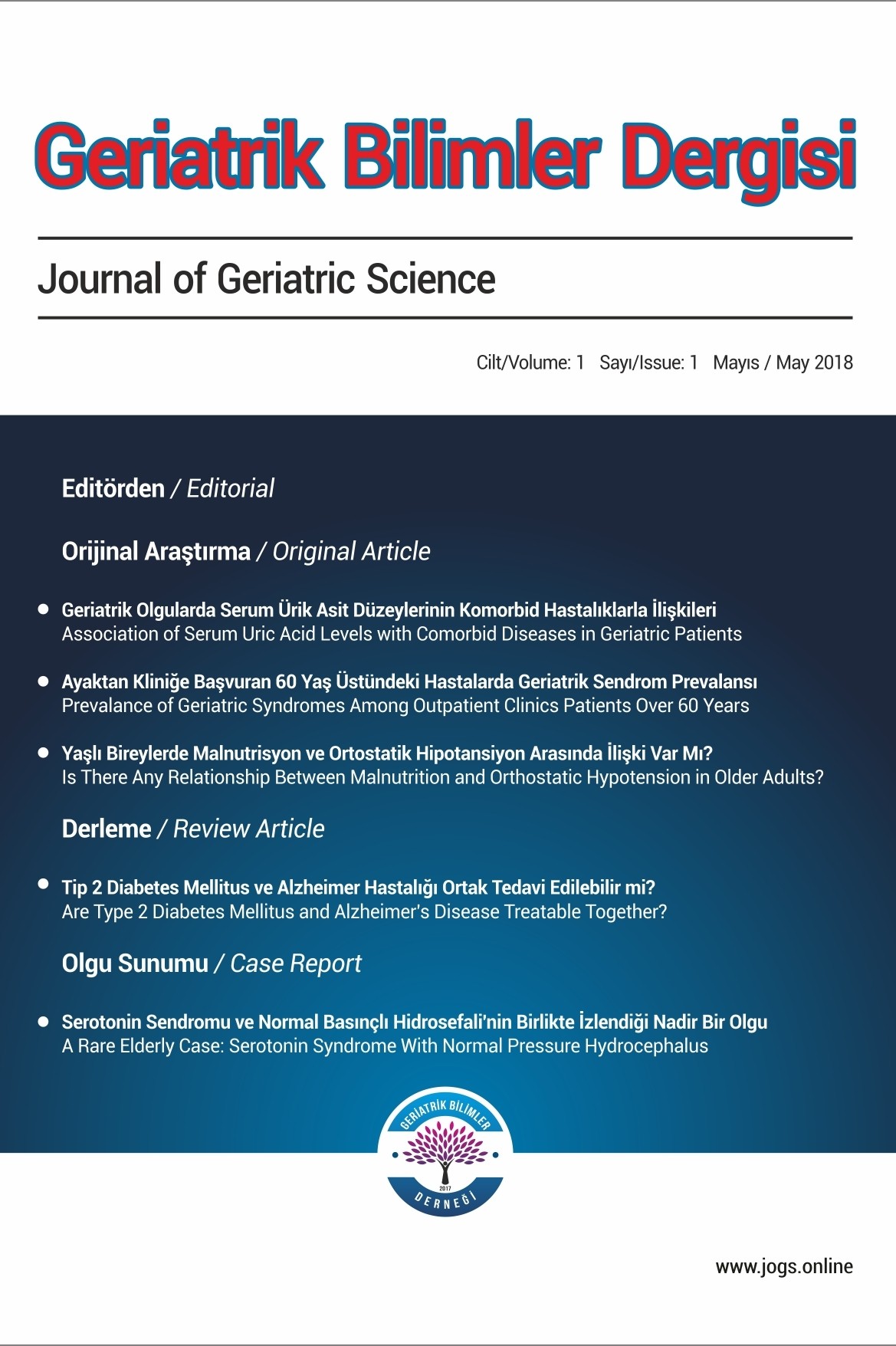Bezmialem Vakıf Üniversitesi Dragos Hastanesi Palyatif Bakım Ünitesi Verileri
Amaç: Türkiye’de palyatif bakım hizmetleri yönergesi ilk olarak Temmuz 2015’te yayınlanmış olup Temmuz 2018 tarihinde yayınlanan güncelleme ile son şeklini almıştır. Palyatif bakım ünitesinde öncelikle onkolojik terminal dönem hastaları ve post-CPR YBÜ yatışı sonrası evde bakım/bakımevine nakledilene kadar olan hastaların bakımı yapılmaktadır. Hastaların ağrı, beslenme, yara bakımı ve enfeksiyon tedavisinin yanı sıra mobilizasyon ve psikolojik desteği de verilmektedir. Bu çalışmanın amacı, palyatif bakım servislerine yatan hastalarının genel özelliklerini ortaya çıkarmaktır. Gereç ve Yöntemler: Haziran 2018-Haziran 2019 tarihleri arasında, Bezmialem Vakıf Üniversitesi Dragos hastanesi palyatif bakım servisine yatan hastaların dosya kayıtları kullanılmıştır ve toplam 261 hasta çalışmaya dahil edilmiştir. Bulgular: Bir hasta için ortalama yatış süresi 20 gün olarak hesaplanmıştır. Hastaların sadece %7.6’sı (n=20) bir başka sağlık bakım yöntemi/merkezine sevk edilmiştir (evde bakım, yataklı servis, bakımevi). Takip edilen hastaların büyük çoğunluğu (%52,9, n=138) serviste eks olmuştur. Yaklaşık %40 hasta (n=103) evine taburcu edilmiştir. Demografik dağılımı incelenen kitlenin toplamda 82 hastadan oluştuğu, bu hastaların %51’i (n=42) erkek, %49’u (n=40) kadınlardan oluşmakta olduğu, hastaların büyük çoğunluğunun terminal onkolojik tanısı olan hastalardan oluştuğu (%80, n=66) anlaşılmaktadır. Onkolojik/non-onkolojik dağılımına göre demografik açıdan karşılaştırmada kadın/erkek oranlarının her iki grupta benzer olduğu görülmekle birlikte onkolojik grubun non-onkolojik gruba göre yaş ortalamasının daha yüksek olduğu (sırasıyla 70,22 yıl, 52,87 yıl), mortalite oranının da daha yüksek olduğu (sırasıyla %60 (n=40), %19 (n=3)) ve ortalama yatış süresinin daha kısa olduğu görülmektedir (sırasıyla 10,33gün, 11,44gün). Sonuç: Palyatif bakım merkezimizin ilk 13 aylık istatistikleri ve son 4 aylık demografik ve tanısal bilgileri gelecek yıllar içinde genişletilerek ileri çalışmalara ışık tutacak, Türkiye’de palyatif bakımın gelişmesine katkıda bulunacaktır.
Anahtar Kelimeler:
Palyatif Bakım, Demografik Değerlendirme
The Evaluation of Bezmialem Vakif University Dragos Hospital Palliative Care Unıt DataTA
Aim: The first formal legal regulation of palliative care services in Turkey issued in July 2015 and has taken its final shape with the update, issued in July 2018. The palliative care unit primarily cares for oncologic terminal period patients and post-CPR ICU patients preadmission before home care or nursing home. Palliative care units provide, in addition to pain management, nutrition support, wound care, infection treatment, mobilization, and psychological support. This study aimed to reveal the general characteristics of patients hospitalized in the palliative care unit of Dragos hospital of Bezmialem Foundation Universty. Material and Methods: This study includes a total of 261 patients and used the records of patients admitted to Dragos hospital of Bezmialem Foundation University palliative care service between June 2018 and June 2019. Results: The mean length of hospitalization for one patient was 20 days. Only 7.6% (n = 20) of the patients were referred to another health care method/center (home care, inpatient service, nursing home). The majority of the patients (52.9%, n = 138) died in the unit. Approximately 40% of patients (n = 103) were discharged home. The demographic distribution of the mass consisted of 82 patients, 51% (n = 42) of which were men and 49% (n = 40) of women, and the majority of patients were patients with terminal oncologic diagnosis (80%, n = 66). According to the oncological / non-oncologic distribution, the demographic comparison showed that the female / male ratios were similar in both groups, but the oncologic group had a higher average age (70.22 years, 52.87 years, respectively) than the non-oncologic group. (60% (n = 40), 19% (n = 3) respectively) Furthermore, the mean length of hospitalization was shorter (10.33 days, 11.44 days, respectively). Conclusions: Palliative care center's first 13 months last four months and demographic statistics and diagnostic information for advanced studies shed light on the future expanded over the years, will contribute to the development of palliative care in Turkey.
Keywords:
Palliative care, Demographic evaluation,
___
- https://www.who.int/cancer/palliative/definition/en/
- Meghani SH, A concept analysis of palliative care in the United States, J Adv Nurs. 2004 Apr;46(2):152-61.
- Afife Ayla KABALAK, Türkiye'de Palyatif Bakım ÇalışmalarıTurkiye Klinikleri J Anest Reanim-Special Topics. 2017;10(1):7-12
- Palyatif Bakım Hizmetlerinin Uygulama Usul ve Esasları Hakkında Yönerge. T.C. Sağlık Bakanlığı 2018
- House M. State of the nations report: terminal illness care in England, Northern Ireland, Scotland and Wales. Centre for health and social care research; 2016.
- https://www.hospiceuk.org/about-hospice-care/media-centre/facts-and-figures/
- Public Health England - Atlas of variation for palliative and end of life care in England
- Gardiner, C. , Ryan, T. and Gott, M. (2018) What is the cost of palliative care in the UK? A systematic review. BMJ Support Palliat Care. ISSN 2045-435X
- Murtagh F, Bausewein C et al (2014) How many people need palliative care? A study developing and comparing methods for population-based estimates. Palliative Medicine Vol. 28(1) 49-58.
- Lynch T, Connor S, Clark D. Mapping levels of palliative care development: a global update. Journal of Pain and Symptom Management 2013;45(6):1094-106
- Yayın Aralığı: Yılda 3 Sayı
- Başlangıç: 2018
- Yayıncı: Geriatrik Bilimler Derneği
Sayıdaki Diğer Makaleler
Bezmialem Vakıf Üniversitesi Dragos Hastanesi Palyatif Bakım Ünitesi Verileri
Zehra Margot CELİK, İzel Aycan BASOGLU, Asli YİGİT, Fatma Esra GUNES
Yaşlılarda Düşük Yürüme Hızının Mini Nutrisyonel Değerlendirme ile İlişkisi
Neziha ULUSOYLAR ERKEN, Fatma Sena DOST GÜNAY
Yaşlılarda Hiponatremiyle İlişkili Faktörler
Suleyman Emre KOCYIGIT, Ali Ekrem AYDIN
Non-Spesifik Bel Ağrılı Yaşlı Bireylerde Yürüme Parametreleri ve Ağrı Şiddeti
Gülşah ÖZSOY, Nursen İLÇİN, İsmail ÖZSOY, Barış GÜRPINAR, Öznur BÜYÜKTURAN, Buket BÜYÜKTURAN, Caner KARARTI, Senem ŞAŞ
